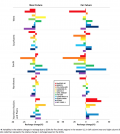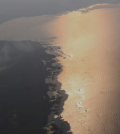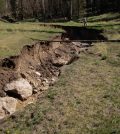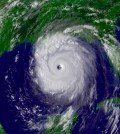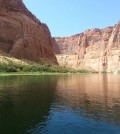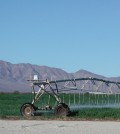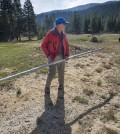Posts for tag "University of Arizona"
Baking in the Sun: How Groundwater Recharge is Likely to Change as the Climate Does
Research shows groundwater recharge in the Western US will change with the climate; dry areas will have less recharge, and wet regions will have more.
- Posted December 15, 2017
Warming Linked To Lake Tanganyika Fish Declines
U. of Arizona investigators lead an effort using sediment cores and dissolved oxygen records to link Lake Tanganyika fish declines and global warming.
- Posted August 11, 2016
Massive Field Scanalyzer Studies Sorghum’s Energy Potential
University of Arizona researchers use a massive field scanalyzer, armed with hyperspectral imagers, to study different varieties of energy-rich sorghum.
- Posted July 25, 2016
Wildfires Cause Surges In Erosion Rates On Forested Mountains
Researchers from the University of Arizona did before-and-after studies of how severe wildfires affect erosion rates.
- Posted May 31, 2016
Spanish Shipwreck, Tree-Ring Records Show Caribbean Hurricanes’ Past Extent
Records of Spanish shipwrecks combined with tree-ring records show the period 1645 to 1715 had the fewest Caribbean hurricanes since 1500, according to new University of Arizona-led research. The study is the first to use shipwrecks as...
- Posted April 11, 2016
Biosphere 2 Gets New Sensor-Equipped Hill Slopes
The Biosphere 2 at the University of Arizona is no ordinary research space. That’s in part because of its legacy as the home of the famous experiments it has supported, but also because of some new additions...
- Posted April 4, 2016
Warm Spring Temperatures Impact Colorado River Streamflows
Spring temperatures play a large role in Colorado River streamflows, according to a release from the University of Arizona. Warm spring temperatures, it appears, tend to reduce streamflows in the upper Colorado River more than realized, researchers...
- Posted March 14, 2016
Climate Change May Cause Western Groundwater Deficits
With persistent drought conditions, things haven’t looked good for groundwater supplies in the western United States for some time. But the effects of climate change will very likely make things worse for four aquifers in the region,...
- Posted March 2, 2016
Study Finds Sierra Nevada Snowpack At 500-Year Low
Scientists at the University of Arizona helped lead a study looking into the extent of this year’s snowpack in the Sierra Nevada mountains, according to the Sacramento Bee. The results were surprising, as researchers found a high...
- Posted September 17, 2015


